Ancient Greeks Had Great Understanding Of Weather And Climate
A. Sutherland - AncientPages.com - Ancient cultures from the Aztecs of Mesoamerica to the Egyptians in Africa and Indians in Asia —became expert astronomers and predictors of seasonal weather patterns.
Ancient world cultures associated weather forecasting with religion and spirituality. Weather such as rain, drought, wind, and cloudiness were associated with a deity, or god and were worshiped in order to ensure good weather.
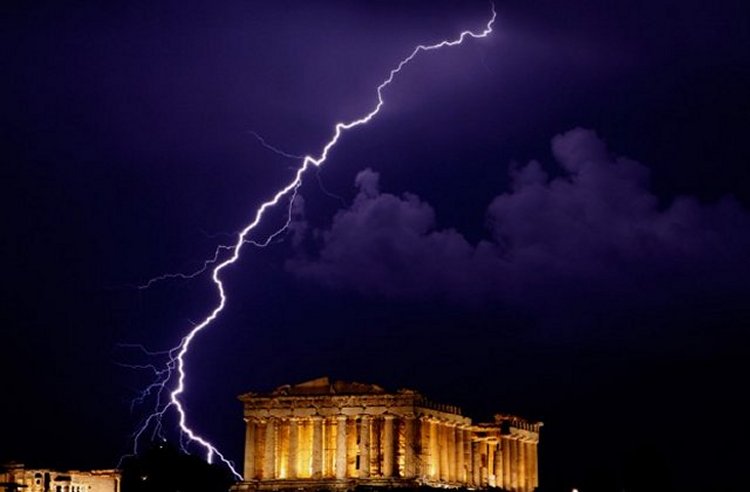
Aristotle is considered the founder of meteorology. He tried to explain the weather through the interaction of the four elements: earth, fire, air, and water.
Around 650 BC, the Babylonians tried to predict short-term weather changes based on the appearance of clouds and optical phenomena such as haloes.
By 300 BC, Chinese astronomers had developed a calendar that divided the year into 24 festivals, each festival associated with a different type of weather.
Rain gods and goddesses were particularly important, because rain influenced agriculture and construction projects. Tlaloc (Aztec), Set (Egyptian), and Indra (India), as well as Thor (Norse), Zeus (Greek), and Shango (Yoruba), are only some gods associated with rain, thunder, and lightning.
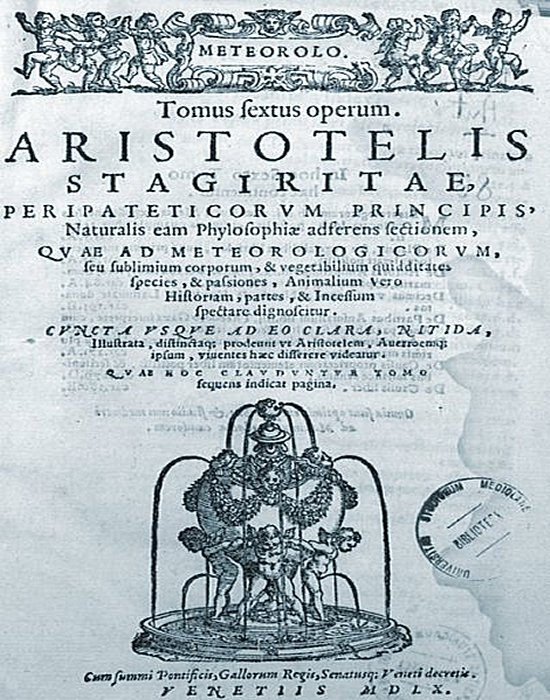
Aristotle's Meteorology is the earliest extant. Greek work on the subject, and is part of a larger project, following on from his studies of natural motion in the Physics, astronomy in On the Heavens, and the four elements in Generation and Corruption. Photo credits: wikipedia
However, it was the Greeks, who began the formal study of climate and, the word 'climate' is derived from the Greek word 'klima', meaning slope, referring to the slope or inclination and referring to the climate conditions created by the Sun’s angle. Moreover, ancient Greeks invented the term “meteorology,” the study of atmospheric disturbances.
Ancient Greeks, as well as other civilizations of that time, often attributed weather changes and natural phenomena to the gods. For example, lightning was a way for Zeus to show his anger, just as Thor in ancient Nordic mythology.
Ancient Greek mythology is an example of how early civilizations tried to explain the unexplainable at the time forces of nature, weather and astronomy.
Many ancient Greek gods and goddesses were elements of weather and seasons personified. Ancient Greeks also believed in Poseidon, god of sea and earthquakes, Helios, god of sun, Selene, goddess of moon, Hephaestus, god of volcanoes, Chione, goddess of snow, Zeus, king of all gods and god of sky, thunder, lightning and rain. All occurrences of favorable or poor weather were thought to be a direct result of godly intervention.
However, thanks to their continuous observation of nature, ancient Greeks had a great understanding of weather and climate in general. It may not have been as advanced as modern science but their basic knowledge helped them to better understand weather changes and find ways to benefit from them.
Aristotle is considered the founder of meteorology. His treatise (the oldest of all comprehensive works) known as 'Meteorology' discusses what Aristotle believed to have been all the affections common to air and water, and the kinds and parts of the earth and the affections of its parts. It includes early accounts of water evaporation, earthquakes, and other weather phenomena.
He tried to explain the weather through the interaction of the four elements: earth, fire, air, and water. Aristotle’s student Theophrastus produced the first book on weather signs, listing observations used to forecast weather, many of which are still used to this day.
In ancient Greece people used their knowledge to their advantage, focusing on the air’s movement, commonly known as wind, as well as the significance of the Sun and Moon positions in the sky in order to forecast phenomena such as tides and improve everyday tasks involving agriculture or sailing.
Written by – A. Sutherland - AncientPages.com Senior Staff Writer
Copyright © AncientPages.com All rights reserved. This material may not be published, broadcast, rewritten or redistributed in whole or part without the express written permission of AncientPages.com
Expand for referencesMore From Ancient Pages
-
 Solstices Brought Mayan Communities Together, Using Monuments Shaped By Science And Religion – And Kingly Ambitions, Too
Featured Stories | Jul 6, 2024
Solstices Brought Mayan Communities Together, Using Monuments Shaped By Science And Religion – And Kingly Ambitions, Too
Featured Stories | Jul 6, 2024 -
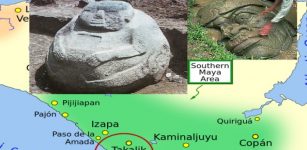 Mysterious Abaj Takalik Of Guatemala And Intriguing Relationship Between Olmec and Maya
Civilizations | Mar 16, 2020
Mysterious Abaj Takalik Of Guatemala And Intriguing Relationship Between Olmec and Maya
Civilizations | Mar 16, 2020 -
 How Far South Did Prehistoric Highly Skilled Polynesian Seafarers Sail?
Archaeology | Nov 1, 2024
How Far South Did Prehistoric Highly Skilled Polynesian Seafarers Sail?
Archaeology | Nov 1, 2024 -
 Ancient Vietnamese Bronze Dong Son Drum Accidentally Discovered
Archaeology | Dec 4, 2015
Ancient Vietnamese Bronze Dong Son Drum Accidentally Discovered
Archaeology | Dec 4, 2015 -
 On This Day In History: Gottfried Wilhelm von Leibniz – Famous Philosopher, Scientist And Mathematician Died – On Nov 14, 1716
News | Nov 14, 2016
On This Day In History: Gottfried Wilhelm von Leibniz – Famous Philosopher, Scientist And Mathematician Died – On Nov 14, 1716
News | Nov 14, 2016 -
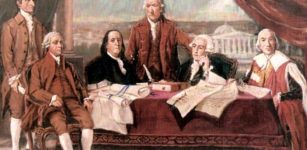 On This Day In History: Treaty Of Paris Was Ratified – On January 14, 1784
News | Jan 14, 2017
On This Day In History: Treaty Of Paris Was Ratified – On January 14, 1784
News | Jan 14, 2017 -
 Saqqara New Discoveries: Fifth Dynasty’s Pyramid Complex That Belonged To Queen Setibhor
Archaeology | Apr 15, 2019
Saqqara New Discoveries: Fifth Dynasty’s Pyramid Complex That Belonged To Queen Setibhor
Archaeology | Apr 15, 2019 -
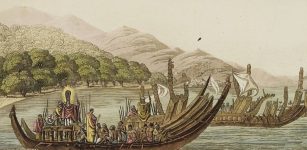 Binary System Was Used By Ancient Polynesians 1,000 Years Before The Concept Of A Computer Was Introduced
Ancient Technology | Feb 3, 2015
Binary System Was Used By Ancient Polynesians 1,000 Years Before The Concept Of A Computer Was Introduced
Ancient Technology | Feb 3, 2015 -
 Tavern And Mysterious Tools Discovered In North Carolina – Stunning Ancient Time Capsule
Archaeology | Jun 19, 2019
Tavern And Mysterious Tools Discovered In North Carolina – Stunning Ancient Time Capsule
Archaeology | Jun 19, 2019 -
 Airmid: Irish Goddess Of Healing And Herbs And One Of The Tuatha Dé Danann
Celtic Mythology | Feb 2, 2018
Airmid: Irish Goddess Of Healing And Herbs And One Of The Tuatha Dé Danann
Celtic Mythology | Feb 2, 2018 -
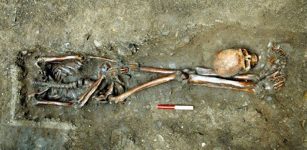 Secrets Of Ancient Skeletons Found In York – Who Were They And Where Did They Come From?
Archaeology | Jan 20, 2016
Secrets Of Ancient Skeletons Found In York – Who Were They And Where Did They Come From?
Archaeology | Jan 20, 2016 -
 Playful Puck (Robin Goodfellow) – Master Of Harmless Mischief And Shakespeare’s Visit To The Magic Valley
Myths & Legends | Jun 22, 2024
Playful Puck (Robin Goodfellow) – Master Of Harmless Mischief And Shakespeare’s Visit To The Magic Valley
Myths & Legends | Jun 22, 2024 -
 Unexplained Phenomena Witnessed Around Mysterious Ancient Stone Structures In New York – Can A Sacred Native American Mountain Offer Clues?
Featured Stories | Nov 3, 2024
Unexplained Phenomena Witnessed Around Mysterious Ancient Stone Structures In New York – Can A Sacred Native American Mountain Offer Clues?
Featured Stories | Nov 3, 2024 -
 On This Day In History: Storming Of The Paris Fortress – Prison Bastille – On July 14, 1789
News | Jul 14, 2016
On This Day In History: Storming Of The Paris Fortress – Prison Bastille – On July 14, 1789
News | Jul 14, 2016 -
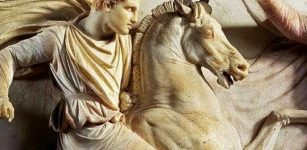 Why Was Alexander A Great Military Genius?
Ancient History Facts | Oct 23, 2018
Why Was Alexander A Great Military Genius?
Ancient History Facts | Oct 23, 2018 -
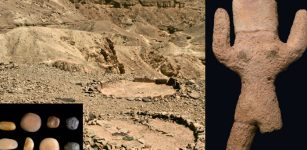 Ancient Artifacts Used In Magical Rituals To Ward Off The Evil Eye Found Next To The Pilgrimage Road
Archaeology | Sep 11, 2023
Ancient Artifacts Used In Magical Rituals To Ward Off The Evil Eye Found Next To The Pilgrimage Road
Archaeology | Sep 11, 2023 -
 Ancient Mysteries And Curious Legends Of Chimney Rock And Grandfather Mountain In North Carolina
Featured Stories | Feb 5, 2024
Ancient Mysteries And Curious Legends Of Chimney Rock And Grandfather Mountain In North Carolina
Featured Stories | Feb 5, 2024 -
 Anartes: Forgotten Celtic Tribe And The Hercynian Forest With Strange Animals
Featured Stories | Jun 18, 2024
Anartes: Forgotten Celtic Tribe And The Hercynian Forest With Strange Animals
Featured Stories | Jun 18, 2024 -
 Who Built Massive Astronomically Oriented Buildings In The Most Ancient Times?
Civilizations | Nov 27, 2018
Who Built Massive Astronomically Oriented Buildings In The Most Ancient Times?
Civilizations | Nov 27, 2018 -
 On This Day In History: Great Siege of Malta: Ottoman Forces Made Attempt To Conquer Malta And Failed – On May 18, 1565
News | May 18, 2016
On This Day In History: Great Siege of Malta: Ottoman Forces Made Attempt To Conquer Malta And Failed – On May 18, 1565
News | May 18, 2016
